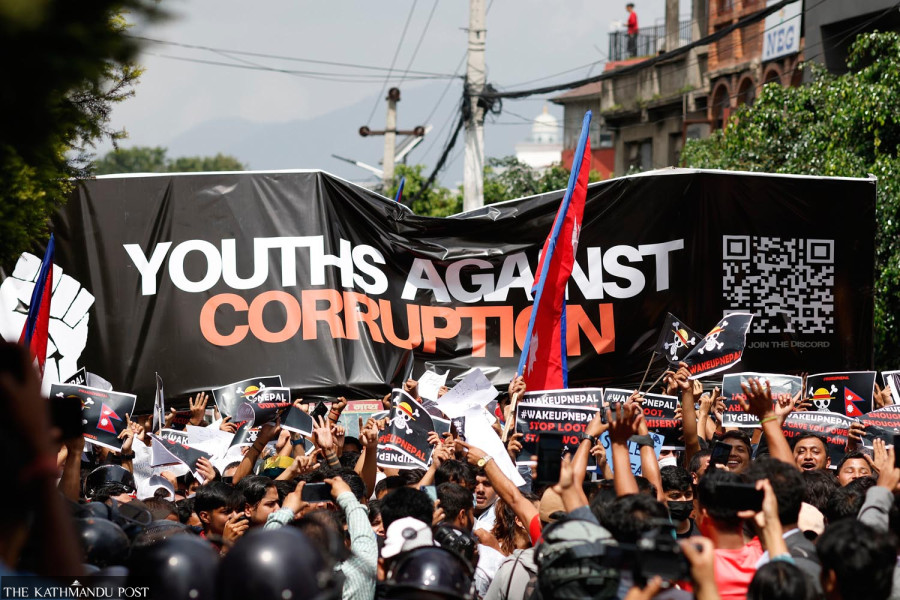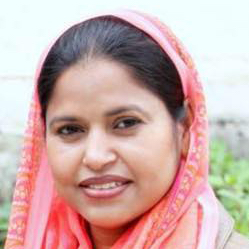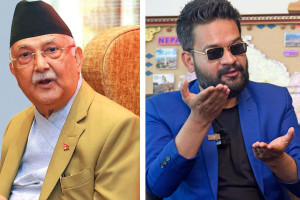Columns
Gen Z’s fight for a better Nepal
This generation may be remembered not for what it tore down but for what it built.
Mohna Ansari
They say the new generation is indifferent—uninterested in politics and detached from national problems. The recent protest of Nepali Gen Zs has proved otherwise. What many thought were signs of apathy are turning out to be signs of deep love—love for fairness, opportunity and a better Nepal.
On September 4, 2025, former prime minister KP Sharma Oli’s government imposed a sweeping ban on 26 social media platforms—including Facebook, Instagram, WhatsApp, YouTube, X—citing a Supreme Court directive and new regulatory rules.
For many Gen Zs, these platforms are more than “just apps.” They are spaces for learning, connecting, expressing grievances, organising, earning livelihoods as content creators and freelancers, and staying in touch with family abroad. The ban felt like an attempt by the authorities to silence not just voices—they were trying to cut off entire ways of being young in modern Nepal.
From discontent to mass protest
It did not take long for outrage to turn into action. Thousands of young people, including students and digital natives accustomed to the 24/7 flow of information gathered in the streets of Kathmandu and other cities. They protested not only against the social media ban but also broader issues such as corruption, nepotism, economic stagnation, lack of opportunity and institutional failures.
At first, the demonstrations were largely peaceful. Young people chanted slogans, held placards and waved national flags. But tensions escalated. As a result, barricades were breached, security forces responded with tear gas, water cannons, rubber bullets—and in some cases, live ammunition. Eyewitnesses recall seeing students, even those in school uniforms, among the wounded and killed.
Human rights under siege
The state’s response raised grave human rights concerns from the very first day. According to Human Rights Watch, police opened fire on demonstrators in front of the Parliament House and other cities. Many protesters were non‑violent; most of them were children in school uniforms simply marching peacefully. As per the initial reports, at least 19 people had been killed, with hundreds injured. Some injuries were severe, whereas some were life‐altering.
The sweeping bans, curfews, deployment of force and shutting down of communication channels were widely seen as violations of Nepal’s Constitution and its international human rights obligations. Right to freedom of expression and Right to peaceful assembly are the rights guaranteed by the constitution. The most alarming aspect remains the lack of accountability. Amnesty International, the International Court of Justice (ICJ) and Human Rights Watch have all called for independent, impartial investigations into the killings and for those responsible—regardless of rank—to be held accountable.
What Gen Z is demanding
While the social media ban may have been the catalyst, the movement was about much more. It was a demand for justice and accountability. It was a cry from the young people to end corruption, dismantle nepotism, and hold leaders accountable for their actions. They are tired of watching privilege being passed down like an inheritance while ordinary citizens are left behind.
Equally important remains the demand for freedom of expression. For Gen Z, this is not just an abstract ideal but a practical necessity. They want to be able to protest, critique and share ideas openly—online and offline—without any fear. Similarly, another pressing demand includes opportunity and economic justice. Many youths are frustrated by the lack of jobs, rising education and healthcare costs and insufficient infrastructure and support. They want their country to invest in their future—not just in symbols but in substance.
Love for country
It is easy for older generations to misread the anger, protests, memes and hashtags, dismissing them as mere disrespect or cynicism. However, all they reflect is love—love for what Nepal could be for its people, for its promise. When youths carry the national flag, quote the constitution, or appeal to their rights and dignity, it is an act of devotion. Their insistence on demanding better: Better governance, better services, better transparency—that is the voice of citizens who believe their country is worth fighting for. This generation does not simply accept what is; it imagines what could be.
Risks, challenges and what comes next
Risks such as continued violence, possible escalation and the loss of life still remain. The possibility of suppression or crackdowns is high when protestors enter sensitive or restricted zones or challenge powerful institutions. Likewise, political actors may try to absorb or redirect the energy of the movement without delivering real change while translating the momentum of protest into policy reforms and sustainable change.
Several steps must be taken to ensure that this movement doesn’t lose momentum. For instance, transparent investigations into the violence must be conducted ensuring clear justice for victims. There must be meaningful dialogue between youth and government institutions, where concerns are truly heard, not merely pacified. Reforms are needed in the judiciary, law enforcement mechanisms, media and regulatory bodies. In conclusion, greater investment in education, healthcare and employment opportunities must be made to enable young people to stay, contribute and build the future they envision for Nepal.
Nepal’s Gen Zs are not indifferent or detached. They are awake. What we are witnessing is not simply outrage at a ban or frustration with corruption; it’s the birth of a new form of patriotism—one that demands equity, rights, respect and participation.
When young people dare to face tear gas, curfews and live bullets, they don’t do it because they don’t care. They do it because they care too much. They deeply love their country and gear up to make it better. And perhaps this generation will be remembered not for what they tore down, but for what they built: A more just, more open Nepal.




 9.12°C Kathmandu
9.12°C Kathmandu















